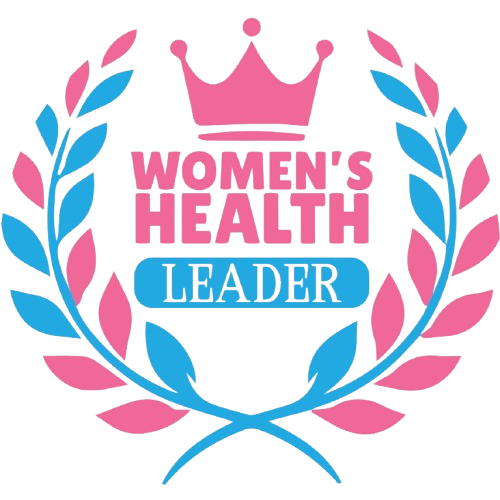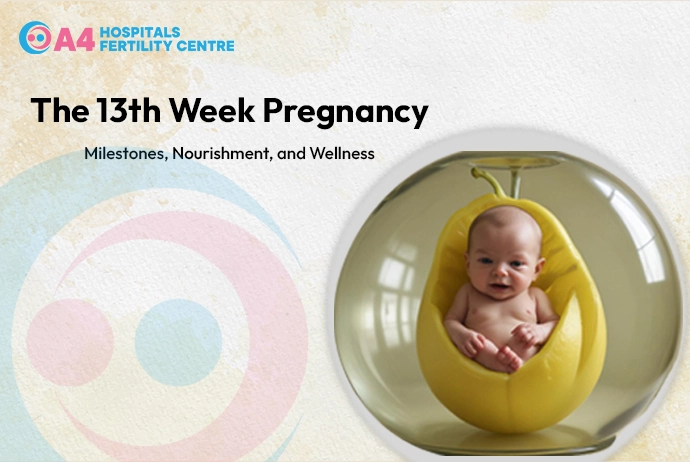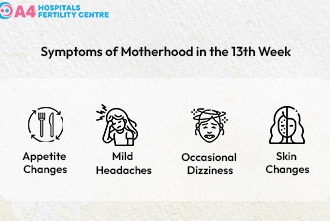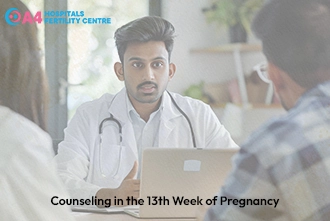
Dr. Aruna Ashok MBBS, MS OG, DNB OG
- Clinical Director


In the 13th week of pregnancy, your baby's development is progressing rapidly. The tiny embryo has now transformed into a fetus, about the size of a lemon. This week marks significant advancements in the formation of muscles, bones, limbs, and organs.
Muscles: Your baby's muscles are starting to develop. It will continue to strengthen throughout the pregnancy. These muscles will eventually allow your baby to move and flex its limbs.
Bones: The skeletal system is also taking shape, with bones beginning to harden. Initially, your baby's bones are soft and flexible to accommodate growth and movement. As the pregnancy progresses, these bones will become stronger and more defined.
Limbs: By the 13th week, your baby's limbs have grown longer. It will start becoming more proportionate. Tiny fingers and toes are forming, and joints are starting to develop, enabling movement.
Organs: Vital organs such as the lungs, heart, liver, and kidneys are developing rapidly. The heart, which began beating around week 6, is now functioning more efficiently, pumping blood to all parts of the body. The liver is producing bile, and the kidneys are starting to produce urine.
Your baby's nervous system is also developing. It happens with the brain and spinal cord becoming more complex. Nerve cells are forming connections, allowing your baby to start experiencing reflex movements.
To support your baby's growth, it's crucial to maintain a healthy lifestyle. Eat a balanced diet. It should be rich in nutrients, get regular exercise, and get plenty of rest. Your body is working hard to nourish and protect your growing baby, so listen to your body and take care of yourself.
Are you feeling any changes in your body as your baby grows? Share your experiences with us!


Entering the 13th week of pregnancy, you may notice changes in your body and emotions as your pregnancy progresses. While some symptoms from the first trimester may start to fade, new ones may arise.
It's important to communicate any concerning symptoms with your healthcare provider. They can offer guidance. This is particularly on managing these symptoms and ensure your pregnancy is progressing healthily.
How are you feeling as you enter the 13th week? Share your experiences with other moms-to-be!
In the 13th week of pregnancy, proper nutrition is crucial to support your growing baby's development and your overall health. Here are some essential foods to incorporate into your diet:
It's also important to stay hydrated by drinking plenty of water throughout the day. Avoid foods that are high in sugar, fat, and processed ingredients, as they provide empty calories and can contribute to weight gain. Follow the simple points,
Eating a balanced diet is recommended. Include a variety of nutrient-rich foods. This will support your health and your baby's development during this critical stage of pregnancy.
What are your favorite pregnancy-friendly recipes? Share them with us in the comments below!
As you progress into the second trimester, counseling can play a valuable role. It will support your emotional and physical well-being. Counseling sessions provide a safe space to discuss any concerns or anxieties you may have about your pregnancy.
During counseling, you can receive guidance on various aspects of pregnancy. These include prenatal care, nutrition, exercise, and childbirth preparation. Your counselor can help you develop coping strategies for common pregnancy challenges. They can also provide emotional support as you navigate this transformative time.
Counseling can also be beneficial for your partner. Your partners may have their own questions and concerns about the pregnancy and impending parenthood. Couples counseling can strengthen your relationship and help you both prepare for the changes ahead.
If you're experiencing stress, anxiety, or depression during your pregnancy, counseling can provide tools and techniques to manage these feelings. Your counselor can also refer you to additional support services if needed.
Remember, seeking counseling is a sign of strength, and it's essential to prioritize your mental health during pregnancy. Your counselor is there to support you every step of the way, ensuring you have a healthy and positive pregnancy experience.
Have you attended any counseling sessions during your pregnancy? Share how they have helped you on your journey to motherhood!
As you progress into the 13th week of pregnancy, your healthcare provider may recommend certain tests. These tests are designed to monitor your health and the development of your baby. They are meant to detect any potential issues early on. This allows for timely intervention and treatment if necessary.
Nuchal Translucency (NT) Scan: This scan checks how thick the skin at the back of your baby's neck is. If it's thicker than usual, it could mean your baby has a condition like Down syndrome.
Genetic screening tests are crucial for assessing the risk of certain genetic conditions . These tests can detect conditions like cystic fibrosis or sickle cell disease. It provides valuable information to you and your healthcare provider.
Blood Tests: These tests analyze your blood to identify any genetic markers that may indicate a risk of genetic conditions. Blood tests can provide detailed information about your baby's genetic makeup. This helps you make informed decisions about your pregnancy and healthcare.
Ultrasound Scans: In some cases, ultrasound scans may also be used as part of genetic screening. These scans can detect physical abnormalities in your baby's development that may be indicative of genetic conditions. Ultrasound scans are non-invasive and pose no risk to you or your baby.
Genetic counseling is an important process of the genetic screening process. A genetic counselor can assist you in order to understand the results of your screening tests. Further, they provide guidance on any further steps that may be necessary. They can also offer support and information to help you make decisions about your pregnancy.
Maternal serum screening is a blood test that measures the levels of certain proteins and hormones in your blood. These proteins and hormones can provide important information about your baby's health and development.
The test is typically performed between 15 and 20 weeks of pregnancy and is used to assess the risk of certain chromosomal abnormalities, such as Down syndrome. Maternal serum screening is a non-invasive test that poses no risk to you or your baby.
The test results show the chance of your baby having a chromosomal problem. If the result is positive, it doesn't mean your baby has the problem. It just means more tests might be needed to be sure.
It's important to discuss the results of your maternal serum screening with your healthcare provider. They can help you understand what the results mean for your pregnancy. It provides guidance on any further testing or monitoring that may be necessary.
A4 Fertility Centre's Birthing classes are designed to empower pregnant women. They provide the knowledge and skills needed for a healthy pregnancy journey. These classes offer a supportive environment. Here, women can learn from experienced professionals. They can also connect with other expectant mothers.
One of the key benefits of A4 Fertility Centre's Birthing classes is the focus on holistic health. The classes cover a wide range of topics, including prenatal nutrition, exercise, childbirth education, and emotional well-being. By addressing these aspects of health, the classes aim to help women have a well-rounded and positive pregnancy experience.
Another important aspect of the Birthing classes is the emphasis on informed decision-making. The classes provide evidence-based information about various aspects of pregnancy and childbirth, empowering women to make choices that are right for them and their babies. This approach helps women feel more confident and in control of their pregnancy journey.
A4 Fertility Centre's Birthing classes also provide practical skills . These include breathing techniques, relaxation exercises, and pain management strategies. By learning these skills, women can feel more prepared and empowered as they approach childbirth.
A4 Fertility Centre's Birthing classes cover physical, emotional aspects of pregnancy. They also focus on partner involvement, guiding partners to support pregnant women. This strengthens their bond and enhances the pregnancy experience.
These classes are valuable for pregnant women. They seek a healthy, positive pregnancy journey. By providing education, support, and practical skills, the classes empower women. They make informed decisions and approach childbirth confidently.